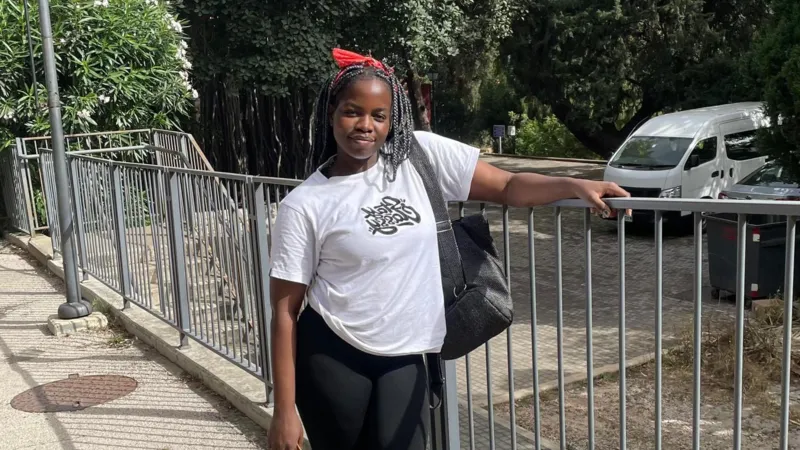African Students in Lebanon: “We Face a Tough Choice Between Staying or Leaving”
Sharon Atyang, a master’s student from Uganda, and Farai Makamba, a 27-year-old student from Zimbabwe, are among many African students in Lebanon feeling the weight of ongoing conflict in the country.
After returning to Beirut to complete their studies, they now keep important documents like their passports and cash on their desks instead of their university books, indicating their growing anxiety about the situation.
The conflict escalated after Hamas attacked Israel, leading to daily cross-border violence and the deadliest days of fighting in almost two decades.
Many people in Lebanon have been displaced, with around one million forced from their homes due to the fighting. Amid the chaos, the U.S., U.K., Australia, France, Canada, and India have advised their citizens to leave Lebanon immediately.
At the American University of Beirut (AUB), fear has intensified, especially after recent explosions related to Hezbollah. Makamba expressed, “We don’t know who is carrying a ticking time bomb,” highlighting the uncertainty students face even in their daily lives.
Classes have moved online, and students are only venturing outside for essential shopping. Atyang, who is also concerned about completing her studies online, worries about the internet and electricity issues back home in Uganda, fearing that returning might jeopardize her scholarship.
The Mastercard Scholarship Program has been supportive, allowing students the option to return home and continue their education online, but many feel that completing their courses in their home countries is nearly impossible due to various constraints.
While it is still possible to leave Beirut through the international airport, flight options are limited as many airlines have suspended services. The students are struggling with their emotional well-being as they navigate the conflict, trying to balance their academic responsibilities with pressure from family members urging them to return home for safety.
Governments like Kenya and Ethiopia are beginning to arrange evacuations for their citizens, but for students like Makamba and Atyang, the decision to leave is complicated by their desire to finish their degrees.
As Atyang put it, “You are on your own, and you have to take care of yourself,” reflecting the isolating experience many African students face in these challenging times【BBC】.
https://www.bbc.com/news/articles/cg78j4ky5xyo

